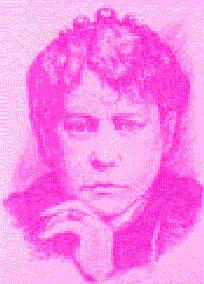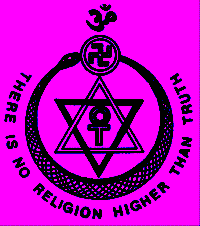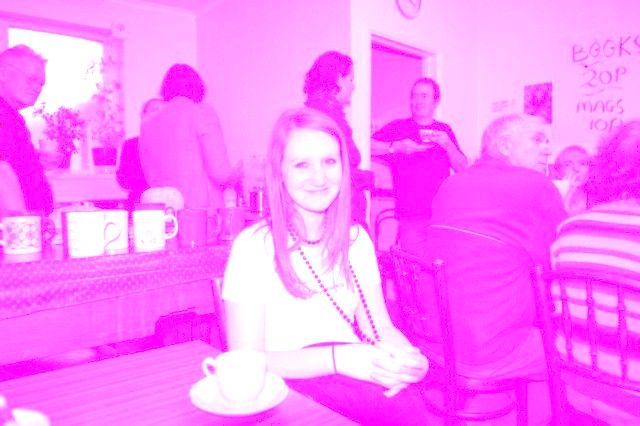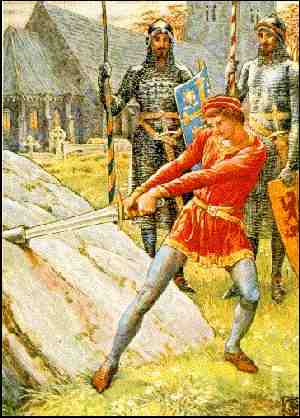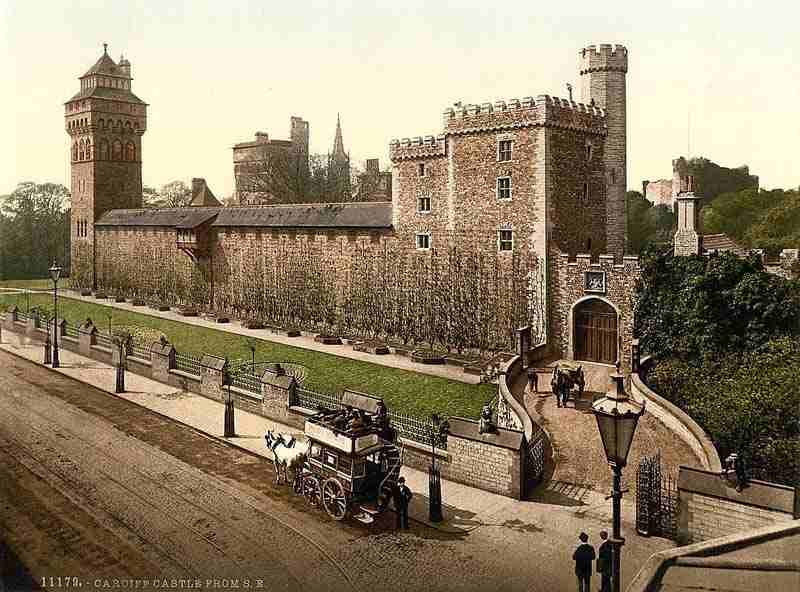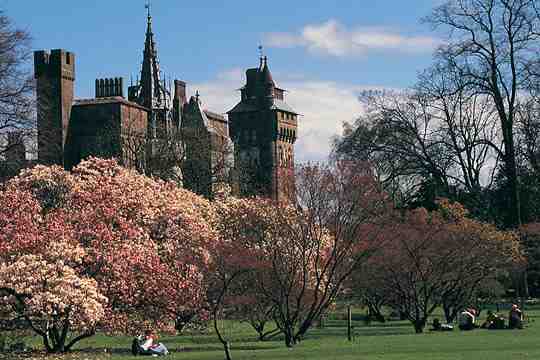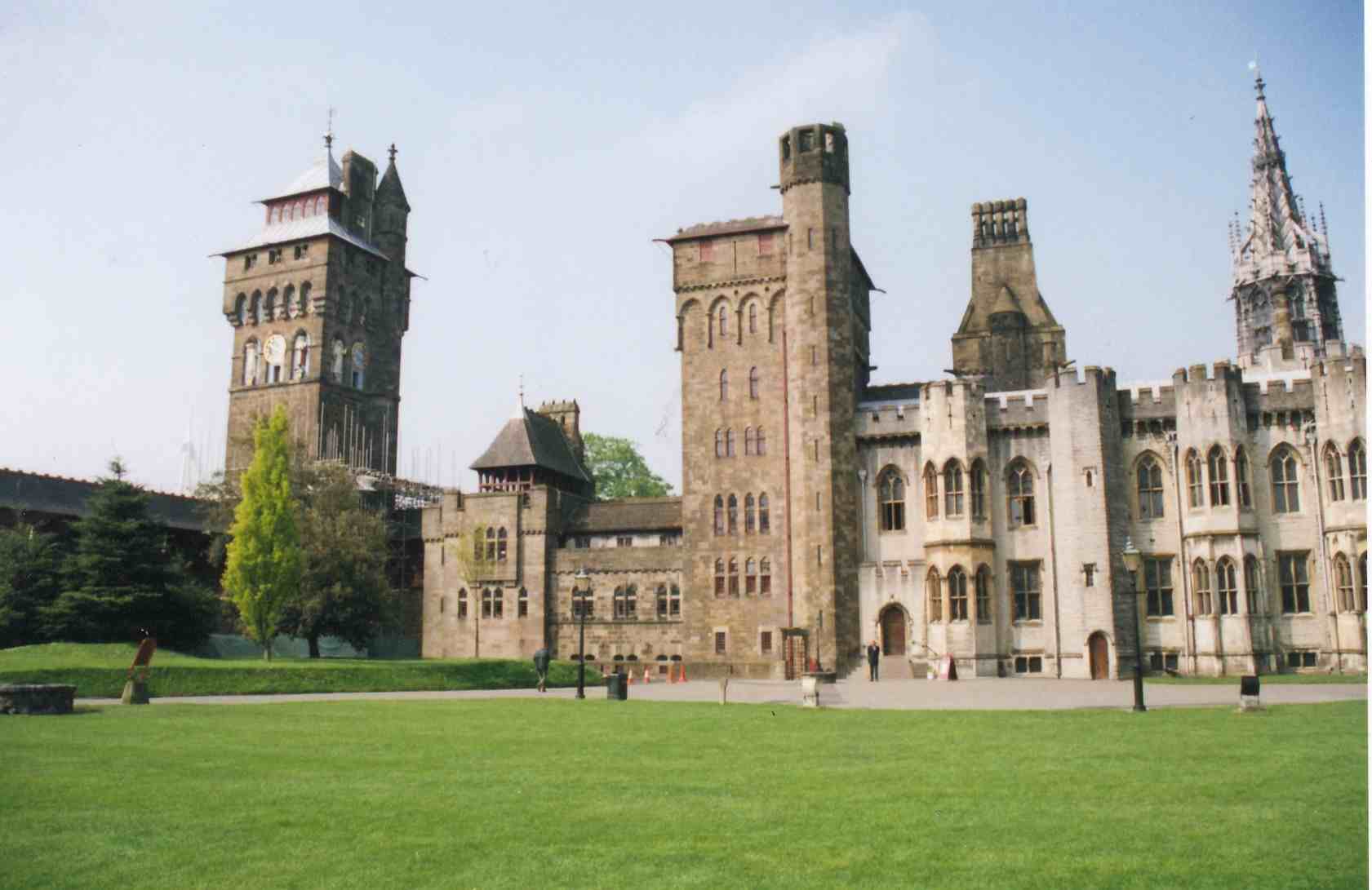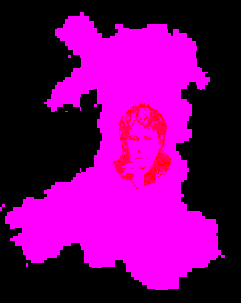
The All Wales Guide to
Getting Started in Theosophy
(And it’s all
Free Stuff )
But you don’t
have to live in Wales
to find this guide useful
Helena Petrovna Blavatsky
1831 – 1891
____________________
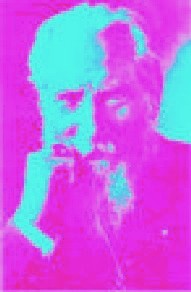
What
Theosophy is
From
A
Textbook of Theosophy
By
C
“ There is a
school of philosophy still in existence of which modern culture has lost
sight.” In these words Mr. A. P. Sinnett began his 1881 book, The Occult World,
the first popular exposition of Theosophy, published thirty years ago.
During the years that have passed since then, many
thousands have learned wisdom in that school, yet to the majority its teachings
are still unknown, and they can give only the vaguest of replies to the query,
“What is Theosophy?”
Two books already exist which answer that question:
Mr. Sinnett’s Esoteric Buddhism and Mrs. Besant’s The Ancient Wisdom. I have no
thought of entering into competition with those standard works; what I desire
is to present a
statement, as clear and simple as I can make it, which
may be regarded as introductory to them.
We often speak of Theosophy as not in itself a
religion, but the truth which lies behind all religions alike. That is so; yet,
from another point of view, we may surely say that it is at once a philosophy,
because it puts plainly before us an explanation of the scheme of evolution of
both the souls and the bodies contained, in our solar system. It is a religion
in so far as, having shown us the course of ordinary evolution, it also puts
before us and advises a method of shortening that course, so that by conscious
effort we may progress more directly towards the goal. It is a science, because
it treats both these subjects as matters not of theological belief but of
direct knowledge obtainable by study and investigation. It asserts that man has
no need to trust to blind faith, because he has within him latent powers which,
when aroused, enable him to see and examine for himself, and it proceeds to
prove its case by showing how those powers may be awakened. It is itself a
result of the awakening of such powers by men, for the teachings which it puts
before us are founded upon direct observations made in the past, and rendered
possible only by such development.
As a philosophy, it explains to us that the solar
system is a carefully - ordered mechanism, a manifestation of a magnificent
life, of which man is but a small part. Nevertheless, it takes up that small
part which immediately concerns us, and treats it exhaustively under three
heads – present, past and future.
It deals with the present by describing what man
really is, as seen by means of developed faculties. It is customary to speak of
man as having a soul.
Theosophy, as the result of direct investigation,
reverses that dictum, and states that man is a soul, and has a body – in fact
several bodies, which are his vehicles and instruments in various worlds. These
worlds are not separate in space; they are simultaneously present with us, here
and now, and can be examined; they are the divisions of the material side of
Nature – different degrees of density in the aggregation of matter, as will
presently be explained in detail.
Man has an existence in several of these, but is
normally conscious only of the lowest, though sometimes in dreams and trances
he has glimpses of some of the others.
What is called death is the laying aside of the
vehicle belonging to this lowest world, but the soul or real man in a higher
world is no more changed or affected by this than the physical man is changed
or affected when he removes his overcoat. All this is a matter, not of
speculation, but of observation and experiment.
Theosophy has much to tell us of the past history of
man – of how in the course of evolution he has come to what he now is. This
also is a matter of observation, because of the fact that there exists an
indelible record of all that has taken place – a sort of memory of Nature – by
examining which the scenes of earlier evolution may be made to pass before the
eyes of the investigator as though they were happening at this moment. By thus
studying the past we learn that man is divine in origin and that he has a long
evolution behind him – a double evolution, that of the life or soul within, and
that of the outer form. We learn, too, that the life of man as a soul is of
what to us seems enormous length, and that what we have been in the habit of
calling his life is in reality only one day of his real existence.
He has already lived through many such days, and has
many more of them yet before him; and if we wish to understand the real life
and its object, we must consider it in relation not only to this one day of it,
which begins with birth and ends with death, but also to the days which have
gone before and those which are yet to come.
Of those that are yet to come there is also much to be
said, and on this subject too a great deal of definite information is
available. Such information is obtainable, first, from men who have already
passed much further along the road of evolution than we, and have consequently
direct experience of it; and, secondly, from inferences drawn from the obvious
direction of the steps which we seem to have been previously taken. The goal of
this particular cycle, is in sight, though still far above us but it would seem
that, even when that has been attained, an infinity of progress still lies
before everyone who is willing to undertake it.
One of the most striking advantages of Theosophy is
that the light which it brings to us at once solves many of our problems,
clears away many difficulties, accounts for the apparent injustices of life,
and in all directions brings order out of seeming chaos. Thus while some of its
teaching is based upon the observation of forces whose direct working is
somewhat beyond the ken of the ordinary man of the world, if the latter will
accept it as a hypothesis he will very soon come to see that it must be a
correct one, because it, and it alone, furnishes a coherent and reasonable
explanation of the drama of life which is being played before him.
The existence of Perfected Men, and the possibility of
coming into touch with Them and being taught
by Them, are prominent among the great new truths which Theosophy brings
to the Western World. Another of them is the stupendous fact that the world is
not drifting blindly into anarchy, but that its progress is under the control
of a perfectly organized Hierarchy, so that final failure even for the tiniest
of its units is of all impossibilities the most impossible. A glimpse of the
working of that Hierarchy inevitably engenders the desire to co-operate with
it, to serve under it, in however humble a capacity, and some time in the
far-distant future to be worthy to join the outer
fringes of its ranks.
This brings us to that aspect of Theosophy which we
have called religious. Those who come to know and to understand these things
are dissatisfied with the slow aeons of evolution; they yearn to become more
immediately useful, and so they demand and obtain knowledge of the shorter but
steeper Path. There is no possibility of escaping the amount of work that has
to be done. It is like carrying a load up a mountain; whether one carries it
straight up a steep path or more gradually by a road of gentle slope, precisely
the same number of foot-pounds must be exerted. Therefore to do the same work
in a small fraction of the time means determined effort. It can be done,
however, for it has been done; and those who have done it agree that it far
more than repays the trouble.
The limitations of the various vehicles are thereby
gradually transcended, and the liberated man becomes an intelligent co-worker
in the mighty plan for the evolution of all beings.
In its capacity as a religion, too, Theosophy gives
its followers a rule of life, based not on alleged commands delivered at some
remote period of the past, but on plain common sense as indicated by observed
facts. The attitude of the student of Theosophy towards the rules which it
prescribes resembles rather that which we adopt to hygienic regulations than
obedience to religious commandments. We may say, if we wish, that this thing or
that is in accordance with the divine Will, for the divine Will is expressed in
what we know as the laws of nature. Because that Will wisely ordereth all
things, to infringe its laws means to disturb the smooth working of the scheme,
to hold back for a moment that fragment or tiny part of evolution, and
consequently to bring discomfort upon ourselves and others. It is for that
reason that the wise man avoids infringing them – not to escape the imaginary
wrath of some offended deity.
But if from a certain point of view we may think of
Theosophy as a religion, we must note two great points of difference between it
and what is ordinarily called religion in the West. First, it neither demands
belief from its followers, nor does it even speak of belief in the sense in
which that word is usually employed. The student of occult science either knows a thing or
suspends his judgment about it; there is no place in his scheme for blind
faith.
Naturally, beginners in the study cannot yet know for
themselves, so they are asked to read the results of the various observations
and to deal with them as probable hypothesis – provisionally to accept and act
upon them, until such time as they can prove for themselves.
Secondly, Theosophy never endeavours to convert any
man from whatever religion he already holds. On the contrary, it explains his
religion to him, and enables him to see in it deeper meanings than he has ever
known before. It teaches him to understand it and live it better than he did,
and in many cases it gives back to him, on a higher and more intelligent level,
the faith in it which he had previously all but lost.
Theosophy has its aspect as a science also; it is in
very truth a science of life, a science of the soul. It applies to everything
the scientific method of oft-repeated, painstaking observation, and then
tabulates the results and makes deductions from them.
In this way it has investigated the various planes of
nature, the conditions of man’s consciousness during life and after what is
commonly called death. It cannot be too often repeated that its statements on
all these matters are not vague guesses or tenets of faith, but are based upon
direct and oft-repeated observation of what happens. Its investigators have
dealt also to a certain extent with subjects more in the range of ordinary
science, as may be seen by those who read the recently issued book on Occult
Chemistry.
Thus we see that Theosophy combines within itself some
of the characteristics of philosophy, religion and science. What, it might be
asked, is its gospel for this weary world? What are the main points which
emerge from its investigations?
What are the great facts which it has to lay before
humanity? They have been well summed up under three main heads.
“There are three truths which are absolute, and which
cannot be lost, but yet may remain silent for lack of speech.
“The soul of man is immortal, and its future is the
future of a thing whose growth and splendour has no limit.
“The principle which gives life dwells in us and
without us, is undying and eternally beneficent, is not heard or seen or smelt,
but is perceived by the man who desires perception
“Each man is his own absolute lawgiver; the dispenser
of glory or gloom to himself; the decreer of his life, his reward, his
punishment.
“These truths, which are as great as is life itself,
are as simple as the simplest mind of man”.
Put shortly, and in the language of the man of the
street, this means that God is good, that man is immortal, and that as we sow
so we must reap. There is a definite scheme of things; it is under intelligent
direction and works under immutable laws. Man has his place in this scheme and
is living under these laws.
If he understands them
and co-operates with them, he will advance rapidly and will be happy; if
he does not understand them – if wittingly or unwittingly, he breaks them, he
will delay his progress and be miserable. These are not theories, but proved
facts. Let him who doubts read on, and he will see.
______________________
The All Wales
Guide to
Getting Started in Theosophy
_______________________
Find
out more about
Theosophy
with these links
Cardiff
Theosophical Society meetings are informal
and there’s always a cup of tea afterwards
The Cardiff Theosophical Society Website
The National Wales Theosophy Website
Theosophy Cardiff’s Instant Guide
One liners and quick explanations
H P Blavatsky is usually the only
Theosophist that most people have ever
heard of. Let’s put that right
The Voice of the Silence Website
Dave’s
Streetwise Theosophy Boards
If you run a Theosophy Study Group,
please feel free to use any material
on this site
If you run a
Theosophy Group you can use
this as an
introductory handout
It’s all “water
under the bridge” but everything you do
makes an imprint
on the Space-Time Continuum.
An Independent Theosophical Republic
Links to Free Online Theosophy
Study Resources; Courses, Writings,
The main criteria
for the inclusion of
links on this
site is that they have some
relationship
(however tenuous) to Theosophy
and are
lightweight, amusing or entertaining.
Topics include
Quantum Theory and Socks,
Dick Dastardly and Legendary Blues Singers.
Lentil burgers, a
thousand press ups before breakfast and
the daily 25 mile
run may put it off for a while but death
seems to get most
of us in the end. We are pleased to
present for your
consideration, a definitive work on the
subject by a
Student of Katherine Tingley entitled
This is for everyone, you don’t have to live
in Wales to make good use of this Website
The Seven Principles of Man
By
Annie Besant
No
Aardvarks were harmed in the
The Spiritual Home of Urban Theosophy
The Earth Base for Evolutionary Theosophy
Reincarnation
This
guide has been included in response
to the
number of enquiries we receive on this
subject
at Cardiff
Theosophical Society
From A Textbook
of Theosophy By C W Leadbeater
How We Remember our Past Lives
Life after Death & Reincarnation
The
Slaughter of the Battle of the Somme 1916 leads to
a
great demand by the public for lectures on Reincarnation
Classic Introductory Theosophy Text
A Text Book of Theosophy
By C
What Theosophy Is From the Absolute to Man
The Formation of a Solar System The Evolution of Life
The Constitution of Man After Death
Reincarnation
The Purpose of Life The Planetary Chains
The Result of Theosophical Study
The Occult World
By
Alfred Percy Sinnett
The Occult World is an treatise on the
Occult and Occult Phenomena, presented
in
readable style, by an early giant of
the Theosophical Movement.
Preface to the American Edition Introduction
Occultism and its Adepts The Theosophical Society
First Occult Experiences Teachings of Occult Philosophy
Later Occult Phenomena Appendix
by
Annie
Besant
THE PHYSICAL PLANE THE ASTRAL PLANE
KÂMALOKA
THE MENTAL PLANE DEVACHAN
THE BUDDHIC AND NIRVANIC PLANES
THE THREE KINDS OF KARMA COLLECTIVE KARMA
THE LAW OF SACRIFICE MAN'S
ASCENT
______________________
Annie Besant Visits Cardiff 1924
National Wales
Centre for Theosophy
Blavatsky Wales
Theosophy Group
Selection of H P Blavatsky’s Writings
Theosophy Birmingham (England)
The Birmingham Annie Besant Lodge
Quotes
from the Writings of
Helena
Petrovna Blavatsky
The Secret Doctrine , Volume 2, Page 100
It is only by the attractive force of the contrasts
that the two opposites — Spirit and Matter — can be cemented together on
Earth, and, smelted in the fire of self-conscious experience and suffering, find themselves
wedded in Eternity.
The Secret Doctrine , Volume 2, Page 108
It is the motive, and the motive alone, which makes
any exercise of power become black, malignant, or white, beneficent Magic. It is
impossible to employ spiritual forces if there is the slightest tinge of
selfishness remaining in the operator .... The powers and forces of animal
nature can equally be used by the selfish and revengeful, as by the unselfish
and the all-forgiving; the powers and forces of spirit lend themselves only to the
perfectly pure in heart — and this is Divine Magic.
Isis Unveiled,
Volume 1, Page 36
The Secret Doctrine , Volume 3, Page 14
Even ignorance is better than
Head-learning with no Soul-wisdom to illuminate and guide it.
The Voice of the Silence, Page 43
Annotation - The Path, May, 1888
The Secret Doctrine , Proem [Volume 1], Page 35
Isis Unveiled, Volume 1, Page 210
The Secret Doctrine , Volume 1, Page 134
incarnation of
his God; and when the sense of personal responsibility will be so
Isis Unveiled, Volume 2, Page 374
It is the
motive, and the motive alone, which makes any exercise of power become
The Secret Doctrine , Volume 2, Page 498
Isis Unveiled, Volume 1, Page 36
From strength to
strength, from the beauty and perfection of one plane to the
greater beauty
and perfection of another, with accessions of new glory, of fresh
knowledge and
power in each cycle, such is the destiny of every Ego, which thus
becomes its own
saviour in each world and incarnation.
The Key to Theosophy, Page 105
The Secret Doctrine , Volume 1, Page 69
The mind
receives indelible impressions even from chance acquaintance or persons
Isis Unveiled, Volume 1, Page 311
The Key to Theosophy, Page 228
Tekels Park to be Sold to a Developer
Concerns about
the fate of the wildlife as
Tekels Park is to be Sold to a
Developer
Concerns are raised about the fate of
the wildlife as
The Spiritual Retreat, Tekels Park in
Camberley,
Surrey, England is to be sold to a
developer.
Tekels Park is a
50 acre woodland park, purchased
for the Adyar Theosophical Society in England
in 1929.
In addition to
concern about the park, many are
worried about the future of the Tekels Park
Deer
as they are not a
protected species.
Confusion as the
Theoversity moves out of
Tekels Park to Southampton,
Glastonbury &
Chorley in Lancashire while the
leadership claim
that the Theosophical Society will
carry on using
Tekels Park despite its sale to a developer
Anyone planning a
“Spiritual” stay at the
Tekels Park Guest
House should be aware of the sale.
Tekels Park & the Loch Ness Monster
A Satirical view
of the sale of Tekels Park
in Camberley,
Surrey to a developer
The Toff’s Guide to the Sale of Tekels Park
What the men in
top hats have to
say about the
sale of Tekels Park
________________________
The Theosophy Cardiff
Glastonbury Pages
The Theosophy Cardiff Guide to
The Theosophy Cardiff Guide to
The Theosophy Cardiff Guide to
The Terraced Maze of Glastonbury Tor
Glastonbury and
Joseph of Arimathea
The Grave of King Arthur & Guinevere
Views of Glastonbury High Street
The Theosophy Cardiff Guide to
Guide to the
Theosophy Wales
King Arthur Pages
Arthur draws the Sword from the Stone
The Knights of The Round Table
The Roman Amphitheatre at Caerleon,
Eamont Bridge, Nr Penrith, Cumbria, England.
Geoffrey of Monmouth
(History of the Kings of Britain)
The reliabilty of this work has long been a subject of
debate but it is the first definitive account of Arthur’s
Reign
and one which puts Arthur in a historcal context.
and his version’s political agenda
According to Geoffrey of Monmouth
The first written mention of Arthur as a heroic figure
The British leader who fought twelve battles
King Arthur’s ninth victory at
The Battle of the City of the Legion
King Arthur ambushes an advancing Saxon
army then defeats them at Liddington Castle,
Badbury, Near Swindon, Wiltshire, England.
King Arthur’s twelfth and last victory against the Saxons
Traditionally Arthur’s last battle in which he was
mortally wounded although his side went on to win
No contemporary writings or accounts of his life
but he is placed 50 to 100 years after the accepted
King Arthur period. He refers to Arthur in his inspiring
poems but the earliest written record of these dates
from over three hundred years after Taliesin’s death.
Pendragon Castle
Mallerstang Valley, Nr Kirkby Stephen,
A 12th Century Norman ruin on the site of what is
reputed to have been a stronghold of Uther Pendragon
From
wise child with no earthly father to
Megastar
of Arthurian Legend
History of the Kings of Britain
Drawn from the Stone or received from the Lady of the Lake.
Sir Thomas Malory’s Le Morte d’Arthur has both versions
with both swords called Excalibur. Other versions
5th & 6th Century Timeline of Britain
From the departure of the Romans from
Britain to the establishment of sizeable
Anglo-Saxon Kingdoms
Glossary of
Arthur’s uncle:- The puppet ruler of the Britons
controlled and eventually killed by Vortigern
Amesbury, Wiltshire, England. Circa 450CE
An alleged massacre of Celtic Nobility by the Saxons
History of the Kings of Britain
Athrwys / Arthrwys
King of Ergyng
Circa 618 - 655 CE
Latin: Artorius; English: Arthur
A warrior King born in Gwent and associated with
Caerleon, a possible Camelot. Although over 100 years
later that the accepted Arthur period, the exploits of
Athrwys may have contributed to the King Arthur Legend.
He became King of Ergyng, a kingdom between
Gwent and Brycheiniog (Brecon)
Angles under Ida seized the Celtic Kingdom of
Bernaccia in North East England in 547 CE forcing
Although much later than the accepted King Arthur
period, the events of Morgan Bulc’s 50 year campaign
to regain his kingdom may have contributed to
Old Welsh: Guorthigirn;
Anglo-Saxon: Wyrtgeorn;
Breton: Gurthiern; Modern Welsh; Gwrtheyrn;
*********************************
An earlier ruler than King Arthur and not a heroic figure.
He is credited with policies that weakened Celtic Britain
to a point from which it never recovered.
Although there are no contemporary accounts of
his rule, there is more written evidence for his
existence than of King Arthur.
How Sir Lancelot slew two giants,
From Sir Thomas Malory’s Le Morte d’Arthur
How Sir Lancelot rode disguised
in Sir Kay's harness, and how he
From Sir Thomas Malory’s Le Morte d’Arthur
How Sir Lancelot jousted against
four knights of the Round Table,
From Sir Thomas Malory’s Le Morte d’Arthur
Quick Explanations with Links to More Detailed Info
What is Theosophy ? Theosophy Defined (More Detail)
Three Fundamental Propositions Key Concepts of Theosophy
Cosmogenesis Anthropogenesis Root Races
Ascended Masters After Death States
The Seven Principles of Man Karma
Reincarnation Helena Petrovna Blavatsky
Colonel Henry Steel Olcott William Quan Judge
The Start of the Theosophical
Society
History of the Theosophical
Society
Theosophical Society Presidents
History of the Theosophical
Society in Wales
The Three Objectives of the Theosophical
Society
Explanation of the Theosophical
Society Emblem
The Theosophical Order of
Service (TOS)
Glossaries of Theosophical Terms
Index of Searchable
Full Text Versions of
Definitive
Theosophical Works
H P Blavatsky’s Secret Doctrine
Isis Unveiled by H P Blavatsky
H P Blavatsky’s Esoteric Glossary
Mahatma Letters to A P Sinnett 1 - 25
A Modern Revival of Ancient Wisdom
(Selection of Articles by H P Blavatsky)
The Secret Doctrine – Volume 3
A compilation of H P Blavatsky’s
writings published after her death
Esoteric Christianity or the Lesser Mysteries
The Early Teachings of The Masters
A Collection of Fugitive Fragments
Fundamentals of the Esoteric Philosophy
Mystical,
Philosophical, Theosophical, Historical
and Scientific
Essays Selected from "The Theosophist"
Edited by George
Robert Stow Mead
From Talks on the Path of Occultism - Vol. II
In the Twilight”
Series of Articles
The In the Twilight”
series appeared during
1898 in The
Theosophical Review and
from 1909-1913 in The Theosophist.
compiled from
information supplied by
her relatives and friends and edited by A P Sinnett
Letters and
Talks on Theosophy and the Theosophical Life
Obras Teosoficas En Espanol
Theosophische Schriften Auf Deutsch
Try these if you don’t live in Wales
and are looking for a
Local Theosophy Group or Centre
UK Listing of Theosophical Groups
____________________________
___________________________
Cardiff Theosophical
Society in Wales
Cardiff, Wales, UK. CF24 – 1DL
_____________________________
Cardiff Picture Gallery
Cardiff Millennium Stadium
The Hayes Cafe
Outside Cardiff Castle Circa 1890
Church Street
Cardiff View
Royal
The Original Norman Castle which stands
inside
the Grounds of the later
Inside the Grounds at
Cardiff Street Entertainment
Cardiff Indoor Market
Cardiff
Theosophical Society in Wales
Wales Theosophy Links Summary
All Wales Guide to Theosophy Instant
Guide to Theosophy
Theosophy Wales Hornet Theosophy
Wales Now
Cardiff
Theosophical Archive Elementary Theosophy
Basic
Theosophy Theosophy in Cardiff
Theosophy
in Wales Hey Look! Theosophy in Cardiff
Streetwise
Theosophy Grand
Tour
Theosophy Aardvark
Theosophy Starts Here
Theosophy 206 Biography of William Q Judge
Theosophy Cardiff’s Face Book of Great Theosophists
Theosophy Evolution Theosophy Generally Stated
Biography of Helena Petrovna Blavatsky
______________________________________________
Foundation of the Original Theosophical Society 1875
The first Theosophical Society was
founded in New York on
November 17th 1875 by Helena
Petrovna Blavatsky,
Colonel Henry Steel Olcott, William Quan
Judge and others.
The Theosophical Movement now consists of
a diverse range of
organizations which carry the
Theosophical Tradition forward.
Cardiff Theosophical Society has been
promoting Theosophy since 1908
______________________________________________
मूल थियोसोफिकल सोसायटी 1875 फाउंडेशन
पहले थियोसोफिकल सोसायटी को न्यूयॉर्क में स्थापित किया गया था
17 नवंबर Helena Petrovna Blavatsky द्वारा 1875,
कर्नल Henry Steel Olcott, William Quan Judge और दूसरों.
थियोसोफिकल आंदोलन अब एक विविध रेंज के होते हैं
आगे थियोसोफिकल परंपरा ले जो संगठनों.
कार्डिफ थियोसोफिकल सोसायटी 1908 के बाद से ब्रह्मविद्या को बढ़ावा देने की गई है
_______________________________________
Mūla
thiyōsōphikala sōsāyaṭī 1875
phā'uṇḍēśana
Pahalē thiyōsōphikala sōsāyaṭī kō
n'yūyŏrka mēṁ sthāpita kiyā gayā thā
17 Navambara Helena Petrovna Blavatsky dvārā 1875,
Kamala Henry Steel Olcott, aura dūsarōṁ.
Thiyōsōphikala āndōlana aba ēka vividha
rēn̄ja kē hōtē haiṁ
Āgē thiyōsōphikala paramparā lē jō
saṅgaṭhanōṁ.
Kārḍipha thiyōsōphikala sōsāyaṭī 1908
kē bāda sē brahmavidyā
kō baṛhāvā
dēnē kī ga'ī hai
_____________________________________________
THEOSOPHY MEETINGS
Please click here for Current Theosophical Events in
Cardiff
